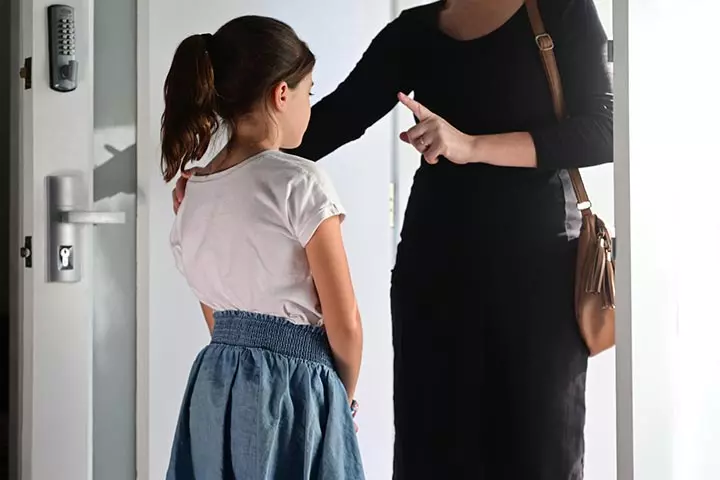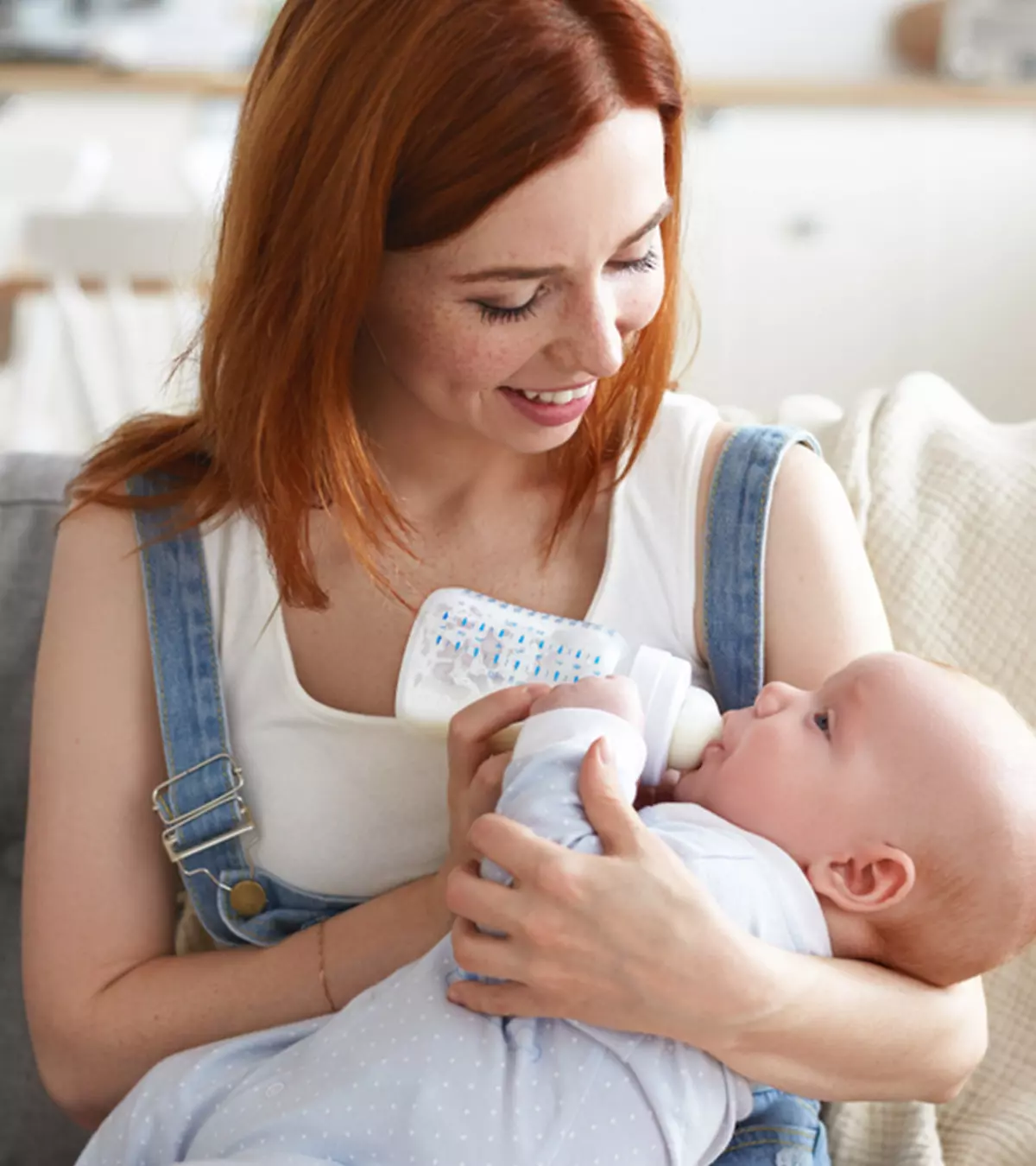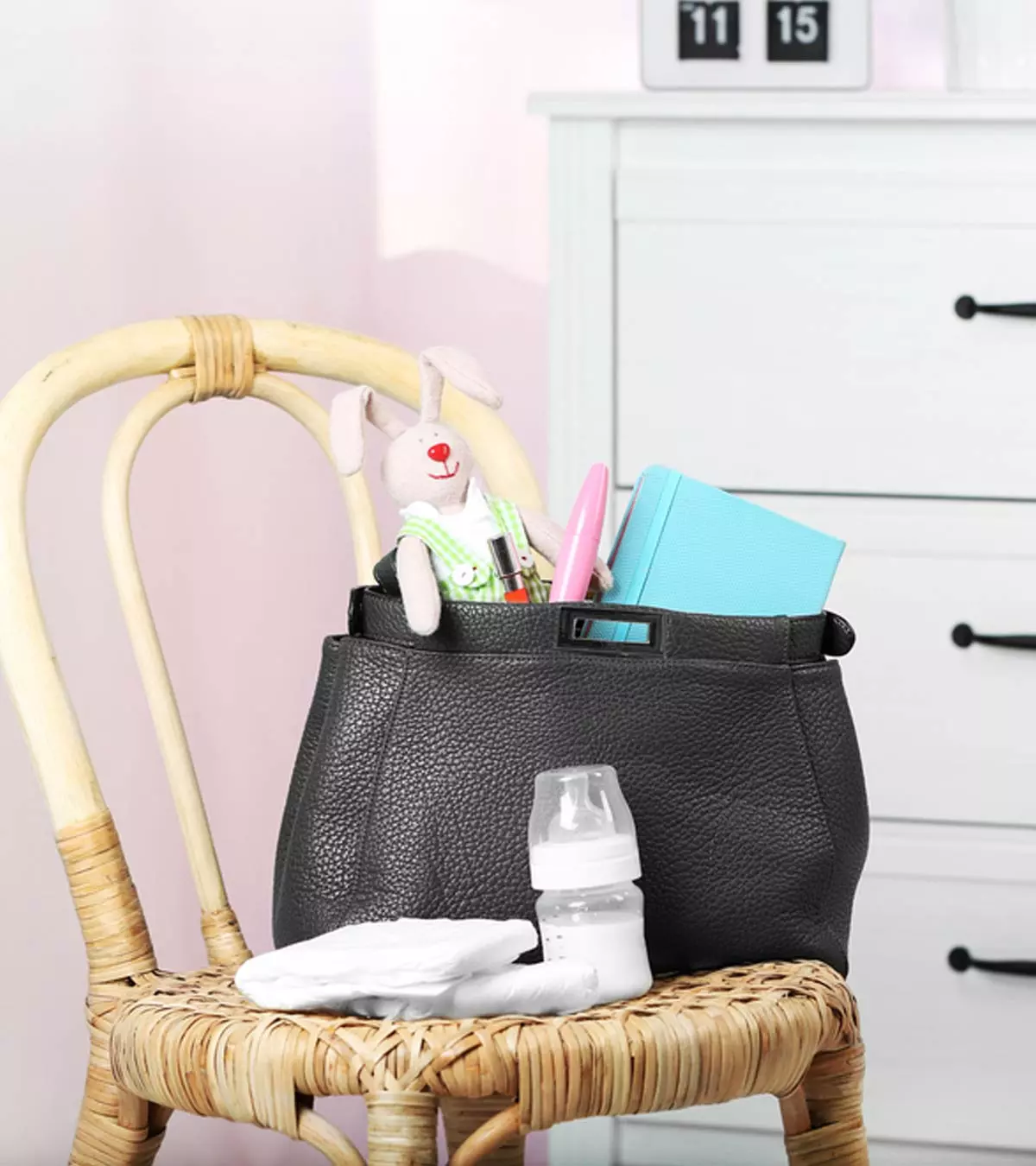
Image: Shutterstock
If you have raised kids yourself or watched others raise their children from close quarters, you must know how challenging that lifestyle can be.. Once children reach the toddler stage, they have a mind of their own. Often, you will have a hard time making them listen to you and do the things you want them to do. They would refuse the vegetables you serve them, won’t stop watching the cartoon even when it’s bedtime and the list goes on. Most parents resort to the common way of dealing with this situation – rewards and punishment. In this way, parents reward their children for their good behavior and punish them for the bad ones. But the main flaw in this method is that children don’t do the needful from their own will but only out of greed or fear. Over the years, a variety of studies have indicated that rewards and punishment is not the best way to discipline and teach your kids (1).

So, here we are to discuss why educating your kids through rewards and punishments is a bad idea, a thing of the past that modern parents no longer adhere to. To further this, we’ll also introduce you to the concept of positive education — to help your kids grow up to become joyful, conscientious, and accomplished adults. So, let’s dive in:
Rewards And Punishments Are Outdated

Image: IStock
Awareness about children’s education and parenting styles have rendered the old-fashion manipulative attitude towards children redundant. They could have been a norm in the past, but modern parents have started to shift how they handle and manage their kids (1).
It may seem that rewards and punishments are two different things, but they are two sides of the same coin. Manipulation, in any form, can impact your child’s personality. Studies show that highly controlling parents who coerce children to behave a certain way can negatively impact their development. These effects could be long-lasting. It may drive children, especially adolescents, to become self-critical or push them to believe that they don’t matter (2).
So, instead of depriving them of something, it’s better to empathetically explain to your kids what they could do to correct a mistake. For example, instead of saying, “Finish your homework right now or you won’t be allowed to watch cartoons”, replace it with explaining logical consequences like, “If you don’t complete your homework, you’ll have plenty piling up for tomorrow.”
Rewards And Punishments Have Side-Effects

Image: IStock
Using rewards and corporal punishments to educate and discipline children can leave a scar on their young minds. Children’s personalities develop depending on various factors, and the bond they share with their parents is crucial.
Rewards can be motivating and a great way to appreciate your child’s achievements, but they may backfire too. It puts a great demand on parents to praise, applaud or offer privileges for everything kids do. Also, remove the incentives, and you’ll have a stubborn kid refusing to do what they should or are requested to. So, when rewards don’t follow a desirable action or accomplishment, they may not obey and throw tantrums instead (3).
The long-term effects of harsh verbal (shouting, humiliation, name-calling) or physical disciplining and rewards on children can be crippling. They may become maladjusted and capable of inflicting violence and indulging in lies, theft, and substance abuse. Such children can also lack self-esteem and show withdrawal symptoms. Physical abuse like spanking can impair brain development, causing anxiety, depression, behavioral problems, and other mental disorders that hinder their growth and overall well-being. Most importantly, it can sour the relationship between parents and children (4).
Why Positive Education Is The Best Approach

Image: Shutterstock
Positive Education (popularly called the PERMAH education model) prioritizes physical and emotional well-being. It is meant to make your child realize that you love them unconditionally. Positive education says that it is good to encourage kids when you catch them engaging in desirable behaviors such as being kind to others. Also, expressing your feelings like joy, gratitude, and hope; and helping them express themselves is a great way to motivate them to perform good deeds repeatedly (5).
This means that a healthy demonstration of love and affection is the way forward to promote better learning in children. It builds cooperation between parents and children and helps the latter develop greater confidence. It takes their emotions and feelings about the world into account which instills in them the ability to differentiate between correct and incorrect behavior.
How To Enforce Positive Education In Children?

Image: Shutterstock
The more positive and empowering you are, the better your children will grow up to be. So, teach them what they need to do way ahead of time, so there is no room for mistakes. Kids may end up doing things for the sake of fun or asserting their independence (depending on their stage of development). So, implementing age-appropriate rules is crucial. If they are toddlers, they’ll need to be dealt with differently than older ones.
Also, stay consistent with your rules and make the consequences of not adhering to the rules known to them. But be reasonable while pointing out wrong behavior. For example, accidentally spilling a glass of water is not a behavioral issue; it’s a mistake but expressing unwillingness (repeatedly) to wear a bicycle helmet despite consistent warnings is an act of defiance (6).
Raising kids isn’t only about feeding, cleaning, or having sleepless nights. It’s also about shaping them into kind and respectful humans. While all parents wish to train their children to be “good”, it’s easier said than done. When your children act up, they could get on your nerves that may trigger an angry response, but choosing a creative way out of chaos can yield better results. When kids start understanding the good from the bad on their own and start taking the correct actions of their own accord, as a parent your joy will know no bounds. Do you still believe in rewarding and punishing your children? Do share your views with us in the comments below!
References
- Rewards and Punishments in the Education of Preschool Children
https://www.sciencedirect.com/science/article/pii/S1877042816001208 - Coercive Parenting and Adolescent Developmental Outcomes: The Moderating Effects of Empathic Concern and Perception of Social Rejection
https://pubmed.ncbi.nlm.nih.gov/32438556/ - Pervasive negative effects of rewards on intrinsic motivation: The myth continues
https://www.ncbi.nlm.nih.gov/pmc/articles/PMC2731358/ - About Child Trauma
https://www.nctsn.org/what-is-child-trauma/trauma-types/physical-abuse/effects - PERMAH
https://inside.nku.edu/hr/eew/PERMAH.html - Effective discipline for children
https://www.ncbi.nlm.nih.gov/pmc/articles/PMC2719514/
Community Experiences
Join the conversation and become a part of our nurturing community! Share your stories, experiences, and insights to connect with fellow parents.












